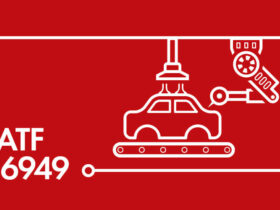In today’s dynamic healthcare landscape, the demand for skilled professionals extends beyond doctors and nurses to a broad spectrum of allied healthcare roles. These include physical therapists, radiologic technologists, medical laboratory technicians, and many other specialists who play critical roles in patient care. As healthcare organizations strive to meet the evolving needs of patients, the role of allied healthcare staffing agencies has become increasingly vital. These agencies are the bridge that connects qualified professionals with the right opportunities, ensuring that healthcare facilities can operate smoothly while delivering high-quality care.
The Role of Allied Healthcare Staffing Agencies
An allied healthcare staffing agency specializes in recruiting and placing professionals in non-nursing, non-physician roles within the healthcare system. These agencies serve a dual purpose: they help healthcare organizations fill essential positions with skilled professionals, and they provide healthcare workers with access to a wide range of job opportunities that match their expertise and career goals.
The healthcare industry is characterized by its ever-changing demands, driven by factors such as technological advancements, shifting patient demographics, and evolving healthcare regulations. Allied healthcare staffing agencies are equipped to respond to these changes quickly, providing healthcare facilities with the flexibility to adjust their staffing levels as needed. Whether it’s filling a temporary vacancy, supporting a new department, or responding to seasonal fluctuations in patient volume, these agencies play a crucial role in maintaining the continuity and quality of care.
Matching Talent with Opportunity
The success of an allied healthcare staffing agency hinges on its ability to match the right talent with the right opportunity. This process involves a thorough understanding of both the healthcare organization’s needs and the professional’s qualifications, experience, and career aspirations.
- Understanding Client Needs: Healthcare facilities have unique staffing requirements based on their size, patient population, and specialized services. An effective staffing agency begins by conducting a comprehensive assessment of the client’s needs. This includes understanding the specific roles that need to be filled, the required qualifications, the work environment, and any particular challenges or preferences the client may have.
- Sourcing and Screening Candidates: Once the agency has a clear understanding of the client’s needs, the next step is to source and screen potential candidates. Allied healthcare staffing agencies often have access to a vast network of professionals, many of whom are actively seeking new opportunities. The screening process typically involves reviewing resumes, conducting interviews, and verifying credentials to ensure that candidates possess the necessary skills and experience.
- Matching and Placement: After identifying suitable candidates, the agency matches them with the available opportunities. This is where the agency’s expertise truly shines. By considering factors such as the candidate’s experience, career goals, and personality, the agency can make placements that are not only a good fit for the healthcare organization but also align with the candidate’s professional aspirations. This careful matching process helps to ensure job satisfaction, reduce turnover, and enhance the overall quality of care provided.
The Benefits for Healthcare Organizations
Partnering with an allied healthcare staffing agency offers numerous benefits for healthcare organizations. One of the most significant advantages is access to a pool of pre-screened, qualified candidates who can fill critical roles quickly. This is especially important in times of crisis, such as during a public health emergency or when a facility experiences a sudden increase in patient volume.
Staffing agencies also provide healthcare organizations with the flexibility to scale their workforce up or down as needed. This is particularly beneficial for facilities that experience seasonal fluctuations or those that are expanding their services. By partnering with a staffing agency, healthcare organizations can avoid the costs and complexities associated with long-term hiring while still ensuring that they have the right staff in place to meet their patients’ needs.
The Benefits for Allied Healthcare Professionals
For allied healthcare professionals, working with a staffing agency offers several advantages as well. These agencies provide access to a wide range of job opportunities, including temporary, contract, and permanent positions. This flexibility allows professionals to explore different work environments, gain diverse experience, and find positions that align with their career goals.
Additionally, staffing agencies often offer support with career development, such as providing access to continuing education resources, certification assistance, and career counseling. This support helps allied healthcare professionals stay competitive in the job market and advance in their careers.
Conclusion
In the fast-paced and ever-evolving healthcare industry, allied healthcare staffing agencies play a critical role in matching talent with opportunity. By understanding the unique needs of healthcare organizations and the aspirations of healthcare professionals, these agencies ensure that the right people are in the right places to deliver high-quality care. Whether you’re a healthcare facility in need of skilled professionals or a healthcare worker seeking new opportunities, partnering with an allied healthcare staffing agency can help you achieve your goals.











